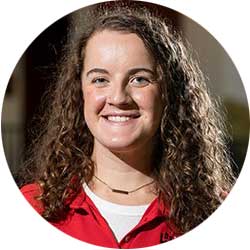Community Spaces for Culturally-Based Groups
In today’s landscape of fraternity and sorority housing, one can find a myriad of options including the traditional fraternity or sorority house, residence halls, townhomes, or apartments dedicated to fraternal organizations as well as models of non-residential community spaces utilized by both individual organizations or councils.
Studies note that shared physical spaces have positive effects on the sociology of a group by promoting face-to-face interactions, encouraging a sense of belonging through a shared identity, facilitating communication and exchange of ideas, supporting collective activities and rituals, and reducing social isolation and loneliness (Gieryn, 2000, Rhubart, et. al, 2023, Trang Nguyen & Levasseur, 2023). While some studies have examined this concept of shared physical spaces in the residential setting for fraternities and sororities (Harris 2007), few have explored non-residential spaces specific to fraternity and sorority life.
This article explores models of physical spaces shared by culturally-based organizations and the successes and challenges of these non-residential models on various campuses.
The Gap in Shared Space for Culturally-Based Groups
It is more common on college campuses in the United States to find both residential and non-residential community spaces for Panhellenic and IFC organizations, while these spaces are more rare for culturally-based groups. This is the case for both predominantly white institutions (PWIs) as well as historically Black colleges and universities (HBCUs). Reasons for this gap in the shared physical spaces of culturally-based fraternal organizations (CBFOs) include but are not limited to:
- Lack of funding due to racial economic inequities that exist between the populations of CBFOs and Panhellenic/IFC organizations; lower membership numbers in CBFOs leading to lack of funding, resources, and ability to fill beds;
- Reproduction of oppression through fraternity and sorority socialization (Salinas, Gillon, and Camacho 2019); and,
- General concerns of risk management and staffing facilities.
One way institutions have worked to combat this gap is by providing shared non-residential community spaces for culturally-based councils on campuses. In some cases, these spaces are funded by the institution, while others require fees to be paid by member organizations or the council(s).
Case Studies
Western Kentucky University, NPHC Facility
One model is from my own institution of employment, Western Kentucky University (WKU). Leading up to fall of 2022, the University acquired a property on campus – previously occupied by a Panhellenic sorority – with the purpose of providing dedicated, non-residential space on campus for NPHC organizations. In fall of 2022, a ribbon cutting ceremony was held for the new “NPHC Facility.” NPHC, as well as all nine of the Divine Nine organizations that comprise NPHC at WKU, began to utilize this space for meetings, ceremonies, storage, and social activities (cookouts, game nights, etc.).
The inaugural year of utilizing this space offered both community successes and challenges for the NPHC and University community. Unique and ongoing considerations in the operations of this space include:
- How should nine organizations share access to this space?
- How can this facility be maintained/staffed with pre-existing staffing shortages in the field of student affairs?
- How can we empower students within this space while still maintaining security and safety with limited funding?
The above questions are ongoing considerations with active responses still being explored. Presently, the facility is operating on a reservation system where each NPHC organization must reserve the space in advance. The ideal of opening the space for regular hangout/meet-up times throughout the week has not yet become reality due to concerns of building access and security, along with short staffing; however, options are still being explored to make this shared community space more readily available to students. With the facility in operation for just one academic year, there are ongoing questions and considerations for making this shared community space optimal for student use while realistically considering the time and resources needed from both staff and the University for its operations. TJ Fleming, WKU’s NPHC President and member of Omega Psi Phi Fraternity, Inc., shared the following in an interview:
How do you feel the NPHC facility has impacted the NPHC community at WKU?
“I believe the addition of the NPHC Facility on WKU’s campus has positively impacted the Greek Community! We now have somewhere we can consider “home” and where we can all gather together and feel like we are in our safe space. Coming up on one year of having the facility, I believe every organization has good intentions and plans when it comes to the future of this facility!”
What have been the positives of the facility?
“This facility has brought opportunities for every organization on campus, especially when it comes to hosting events. We see it as an additional space to execute our ideas and let the community come together. The facility is close to campus therefore it’s convenient when leaving from classes or your home. The facility allows spaces for hosting of NPHC meetings as well as chapter meetings.”
How would you like to see the facility used in the future?
“I would like to see chapters continue to utilize this space in the future for whatever they feel is beneficial for them as well as the WKU community. I wouldn’t want this opportunity we were given to get taken away for any reason. I believe the house will flourish tremendously as more is put into it such as furniture and decoration additions. I think creativity with the facility will expand further than just hosting events and meetings at this facility in the future. I’m excited to see where it’ll be taken once I’m gone as well.”
University of Louisville, NPHC Suite
A similar model for a shared NPHC community space comes from the University of Louisville (UofL). UofL’s NPHC is composed of all the Divine Nine organizations as well as an affiliate organization, Gamma Phi Omega International Sorority, Inc. All of these organizations pay a fee each semester to utilize a shared NPHC Suite on campus, which uses a reservation system on the platform ‘EngageUofL.’ Similar to WKU’s model, UofL students utilize this space for chapter meetings, NPHC executive board meetings, and other social events, such as “girls night,” hosted by the NPHC sororities in the suite in Spring 2023.
When researching this space, I spoke with UofL’s Coordinator of Fraternity and Sorority Life, Keira Martin. Martin shared that some of the successes included a 2021 renovation to the suite, as well as the opportunity for organizations to have a space to call their own. Martin shared, “In my undergraduate experience, we [NPHC] didn’t have a space like that. Because they [current NPHC students] have a space to go, I want them to utilize it more.”
Some of the challenges Martin mentioned were similar to challenges faced with the NPHC at WKU, including student buy-in and the everyday operations of a facility. Martin expressed that in the area of campus where the NPHC suite is located, the Wi-Fi can be unstable, which deters students from using this space. Access to the space and security for the suite were also concerns as the fraternity and sorority life staff worked with Housing and Residence Life on this piece of suite operations.
Arizona State University, Greek Leadership Community Center
Arizona State University (ASU) provides space for all five of its councils, including IFC, Multicultural Greek Council (MGC), National Association of Latino Fraternal Organizations Council (NALFO), Panhellenic, and NPHC. This space had its beginnings around 2012 when the Office of Fraternity & Sorority Life was looking to build new fraternity and sorority housing on campus. When these conversations began, the needs of each council were assessed. At the time, the culturally-based groups expressed that the need for residential housing was not there, but an opportunity to have meeting spaces on campus was needed. This was part of an ongoing conversation that led to the opening of the Greek Leadership Community Center in 2018. This space consists of office suites for all five councils and a ballroom that can divide into three smaller meeting rooms, providing a physical space for all councils to create a sense of community on ASU’s campus.
The operations of this facility run through the Office of Fraternity and Sorority Life, with support from Housing and Residence Life. While this facility is available to all fraternities, sororities, and councils, culturally-based groups are provided with larger office suites and a two-week head start on making reservations in the community center, compared to IFC and Panhellenic groups (as the organizations in these councils also have their own facilities in the neighboring Greek Village). This reservation preference system attempts to create more equity between councils based on the resources and needs of each group. Since its opening, this facility has been used for chapter meetings, philanthropy events, showcases, and national conventions. Notable national and regional events held in this space include the Kappa Alpha Order Western Regional meeting, Phi Delta Theta Province meeting, Sigma Lambda Beta International Fraternity, Inc. Sector Meetings, National Association of Latino Fraternal Organizations (NALFO) Executive Board of Directors Meeting, and the 2023 Pi Lambda Chi Latina Sorority, Inc. National Convention.
Gary Ballinger, Director of Fraternity and Sorority life at ASU, noted that, since its opening, CBFOs on campus finally have a dedicated space, giving these organizations a more notable presence on campus. When discussing the challenges regarding the Greek Leadership Community Center, Ballinger said, “Since we [Greek Leadership Community Center] are next door neighbors to the Greek Village, there is sometimes a perception that the community center is for the village.” This means that getting buy-in and ownership of the space by the CBFOs on campus was a challenge as it could be perceived that it is for the IFC and Panhellenic groups since they are housed right next door.
This challenge of student buy-in to the facility was a common thread that rang true to my own experiences working with the new NPHC facility at WKU and from the conversations I had with Keira Martin from UofL. As facilities specific for CBFOs continue to have a presence on campuses, this concept of creating buy-in is one that professional staff and advisors should keep in mind. Encouraging students to utilize the space and take ownership of their community facilities should be an ongoing conversation with student leaders and chapter advisors.
Reflections
As noted in the introduction, research-tested models for non-residential spaces for fraternities and sororities are lacking but learning from those across the country who are testing these spaces can help create better understanding and best practices for future communities.
While this article focuses specifically on non-residential facilities, it is also important to note that some campuses, such as Virginia Tech, have developed residential NPHC houses shared among the council. Virginia Tech’s NPHC House is located near their 13 Panhellenic and 6 IFC residentially-housed organizations. Their NPHC house includes a small two-room, two-bathroom facility with a kitchenette that houses NPHC programs and general body meetings.
As trends continue to evolve on campuses related to fraternity and sorority housing, facilities, and efforts to create more equitable fraternity and sorority communities, student affairs professionals should also consider possibilities for providing shared community spaces for culturally based organizations. We must do this knowing that the considerations will differ from the typical or historical model of fraternity and sorority housing. Keira Martin (UofL) expressed, “If you give students a space, you should make sure the space is sustainable.” As this work continues, may we continue to leave a legacy of sustainable spaces for students so that they can develop throughout their collegiate fraternity/sorority experiences.
About the author:
 Amelia Kolb serves as the Assistant Director of Leadership & Volunteerism and NPHC advisor at Western Kentucky University. A 2015 initiate of the Epsilon Kappa Chapter of Alpha Xi Delta Women’s Fraternity, she now volunteers as Chapter Advisor. Her interests lie in creating an educational space that allows for personal development and opportunities to establish relationships that challenge opinions and world-views through the collegiate experience.
Amelia Kolb serves as the Assistant Director of Leadership & Volunteerism and NPHC advisor at Western Kentucky University. A 2015 initiate of the Epsilon Kappa Chapter of Alpha Xi Delta Women’s Fraternity, she now volunteers as Chapter Advisor. Her interests lie in creating an educational space that allows for personal development and opportunities to establish relationships that challenge opinions and world-views through the collegiate experience.
References
Gieryn, T. F. (2000). A Space for Place in Sociology. Annual Review of Sociology, 26, 463–496. http://www.jstor.org/stable/223453
Harris, M. J. (2007). Roommate relationships among first-year college students in fraternity and sorority housing. Journal of College & University Student Housing, 34(1), 40-49.
Rhubart, D., Kowalkowski, J., & Wincott, L. (2023) The Built Environment and Social and Emotional Support among Rural Older Adults: The Case for Social Infrastructure and Attention to Ethnoracial Differences. Rural Sociology. doi.org/10.1111/ruso.12491.
Salinas Jr, C., Gillon, K. & Camacho, T. (2019). Reproduction of oppression through fraternity and sorority recruitment and socialization: Reproduction of oppression through fraternity. New Directions for Student Services. 2019. 29-38. 10.1002/ss.20291.
Trang Nguyen, T.H. & Levasseur, M. (2023) How Does Community-Based Housing Foster Social Participation in Older Adults: Importance of Well-Designed Common Space, Proximity to Resources, Flexible Rules and Policies, and Benevolent Communities, Journal of Gerontological Social Work, 66:1, 103-133, DOI: 10.1080/01634372.2022.2133199



